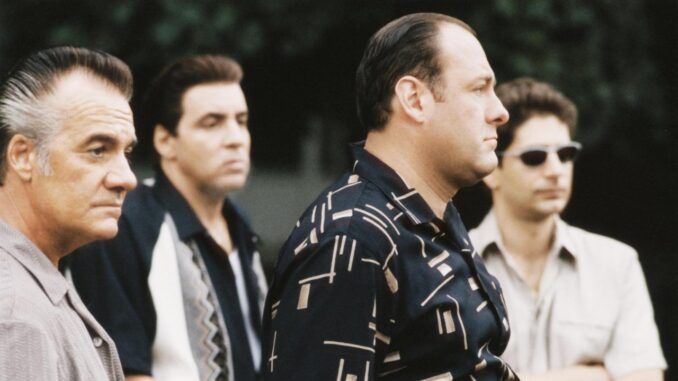
David Simon’s The Wire is often hailed as one of the greatest television dramas of all time. But what influenced its creation? While many assume that shows like The Sopranos served as a guiding light, Simon’s relationship with the series is a bit more complicated. In an enlightening interview, he revealed his admiration for various storytelling styles without being a consistent viewer. Let’s dive into the fascinating connections and influences behind The Wire and explore the larger context of its creation.
The Wire: A New Era of Storytelling
Released in 2002, The Wire provided a raw, unfiltered look at the drug trade in Baltimore, Maryland. The show followed the lives of both law enforcement and drug dealers, revealing the complexities of urban life and systemic failures. Simon’s groundbreaking approach to storytelling emphasized realism and moral ambiguity, crafting a narrative that still resonates with audiences today.
Breaking Down the Structure
The Wire is structured across five seasons, each focusing on different facets of the city—from the police force to the education system and the media. This layered storytelling allows for a comprehensive exploration of societal issues, a method Simon credits to his journalistic background. The series thrives on its character development, portraying the struggles of individuals trapped within larger systems.
The Sopranos: A Touchstone of TV Drama
On the surface, The Sopranos and The Wire seem like two sides of the same coin. Both series explore crime, power, and moral complexity but from different perspectives. While The Sopranos centers on the life of Tony Soprano, a mob boss, The Wire zooms in on the detectives trying to bring down the drug lords.
Simon’s Perspective on The Sopranos
Interestingly, David Simon revealed in his interview with Slate that while he admires the storytelling of The Sopranos, he doesn’t watch it regularly. This nuanced relationship highlights how a creator can appreciate the artistry of a show without directly drawing inspiration from it. Simon remarked:
“There were no models for us in TV. I admire the storytelling of The Sopranos, though I don’t watch it consistently. And Deadwood; I don’t watch it, but I admire their storytelling.”
This statement speaks volumes about Simon’s approach. He acknowledges the artistic contributions of shows like The Sopranos while carving out his own path.
Deadwood: Another Influential Series
Simon also mentioned Deadwood, a show that, while less widely known, has garnered its own cult following. Released in 2004, Deadwood tackled themes of power, civilization, and morality in the context of a lawless frontier town. Though it aired two years after The Wire, its innovative storytelling techniques left a mark on Simon.
The Unique Storytelling of Deadwood
Deadwood was celebrated for its richly developed characters and sharp dialogue, a combination that resonates with Simon’s philosophy of deep character exploration. The series dives into the complexity of human motivations, similar to the way The Wire does. The way it blends historical events with fictional characters has also influenced Simon’s storytelling style.
Christopher Nolan: A Surprising Connection
The ripple effects of The Wire reach far beyond television, even inspiring filmmakers like Christopher Nolan. Renowned for his complex narratives and unconventional storytelling, Nolan cited The Wire as a significant influence on his decision to forgo modern communication technology.
Nolan’s Decision to Go Off the Grid
In an interview with Stephen Colbert, Nolan shared his perspective on technology and creativity:
“I don’t have an email address. I’ve never used email. And I don’t have a smartphone. I will carry a pay-as-you-go dumb phone thing. I was inspired by The Wire, definitely.”
This statement highlights how The Wire has transcended its medium, inspiring not just television writers but filmmakers as well. By opting for a simpler form of communication, Nolan aims to reduce distractions and enhance his creative process. It’s a testament to how impactful storytelling can shape individual choices and lifestyles.
The Cultural Impact of The Wire
Despite its initial ratings challenges, The Wire has become a cultural phenomenon. Its blend of gritty realism, complex characters, and social commentary set a new standard for television.
Critical Acclaim and Ratings
With a 9.3/10 rating on IMDb and a 94% score on Rotten Tomatoes, The Wire has earned its place in the pantheon of great TV shows. Its unflinching portrayal of societal issues resonates deeply with viewers, making it a topic of discussion in academic circles and among casual audiences alike.
The show’s unique ability to capture the essence of urban life, while simultaneously critiquing systemic failures, has led to a legacy that continues to influence new generations of writers and creators.
Conclusion: The Legacy of Influences
David Simon’s The Wire stands as a monumental achievement in television history. While he acknowledges the artistry of shows like The Sopranos and Deadwood, Simon’s work is a testament to how unique perspectives and experiences shape storytelling. The cultural impact of The Wire reaches beyond the screen, influencing filmmakers like Christopher Nolan and inspiring countless discussions about morality, identity, and the human condition.
As we look back at these groundbreaking series, it’s clear that their legacies will continue to shape the landscape of television and film for years to come.
